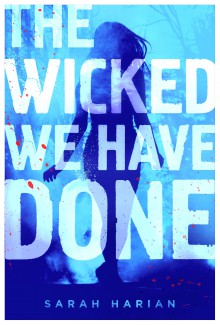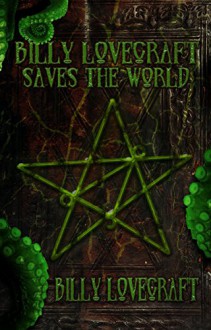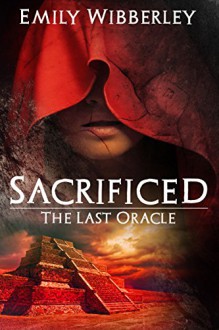
The man I shot was named Jason Earhart, dean of the math department. But then, he was only a body.
I am wicked because the moment Jason died, the only thing I felt was relief.
I murdered an innocent man in cold blood.
I'm sorry, am I supposed to like you?. This is a book about the nature of good and evil, and it completely failed to convince me that any of the criminals within this book deserved a second chance at life. I am not pro-death penalty by any means. This book just failed to be convincing on the grounds of speculative fiction.
This book tries to present the premise that a criminal may be granted a new lease on life if their minds, their genetic makeup is pure. That despite their murderous crime, they could still be goooooooooood inside.
Bullshit.
This book is an inconsistent, flashback-filled mess, with an unreliable first-person narrator. We are told that Evalyn is a murderer, and yet there's no attempt at building sympathy for her whatsoever. She shows no remorse; all we got is a self-pity-party, there was nary a mention of the people whom she was purported to have killed. How am I supposed to care about her? There's plenty of guts and blood, but it was purely gratuitous. I was gnawing on a small pork hock while reading a scene where a girl's head exploded, spraying bloody brain matter all over the fucking place without feeling a twinge of nausea. The violence is there only for shock value, because I didn't give a damn about any of the characters and I didn't care whether they lived or got gutted or died. There was no emotion to any of the deaths within this book.
What's the saying, "Do the crime, do the time?" Yeah. It may not be perfect, but our current justice system mostly works. So what the fuck is with this new Compass Room shit? I don't get it! What's the fucking point?!
It's not just the premise, the characters and how they're presented completely failed to back up the idea of inner goodness vs. "evil" acts. I feel that a person should be judged by their actions, not their thoughts. We all have a darkness within us. It's up to us to suppress that evil. This book completely failed to convince me on the concept of the Compass Room, and it didn't convince me that the criminals and killers within deserve to live through the experience.
The Summary:
Fifteen years ago, government scientists manufactured an accurate test for morality—an obstacle course, where the simulations within proved whether a candidate was good or evil. It was named a Compass Room.
Evalyn is a mass murderer.
The footage of my crime rolls. Crying families outside Roosevelt College. Students and professors wailing, screaming. FBI, police, bomb squad.
All storming the school to catch one of the shooters who initiated fifty-six deaths.
All storming the school to catch me.
She is one of eight who has killed 56 people at her college. She got caught, and now she is most likely going to die.
But not through the death penalty.
She has chosen the trials of the Compass Room. The Compass Room is a technology developed to determine the true morality within a person. It is a moral obstacle course, and it will kill those who are truly evil.
After the law passed, engineers updated the Rooms to kill the wicked. They became the most accurate form of the death penalty ever created.
It's not entirely clear how the Compass Room ("CR") works, but Evalyn is one of 10 criminals, all of them murderers, who will enter the CR to be tried. 10 will go in, statistics say that an average of 2.5 will make it out. The guys, girls, all in their teens through their 20s, are all multiple murderers. They are hoping for a chance to prove that their minds are good, that they deserve to live.
They enter the CR, and it's not as they expected. For one thing, it's not a room. It's a vast expanse of space that changes, that moves them from one "Testing" environment in different scenarios. From a plush mountain resort with top-shelf liquors to a wilderness where they have to scrounge for food. The only thing that remains consistent is the nightmares---or rather, the "Tests" that pop up to evaluate their goodness.
She creeps to me, shoulders erect. Her head hangs at an angle, stringy blonde hair falling limply around her shoulders, eyes sunken in their sockets.
“Shh.” She reaches out, like she’s going to place a finger to my lips. I shut my eyes, waiting for her touch.
“Don’t tell him I’m here. I want it to be a surprise.”
And the tests can be deadly. There is no trial by jury here. One wrong motion means death.
Clasping her hands on either side of his head, she twists, elbows swinging as she snaps his neck in half.
Except when it doesn't. Because it seems that the morality in this book is pretty relative.
Casey hacks and hacks, blood splattering across his face and clothes as he rips the knife away. He doesn’t stop, not when his dad has to be dead—again—his back nothing more than ripped denim and mangled pockets of swelling blood.
My breath rattles through the air. Nothing happens.
Aaaand that's pretty much it. They find food. They fall in love. They survive. They make friends. They're all criminals, some of whom are intrinsically good inside? Whatever. I don't care.
The Premise:
Fifteen years ago, government scientists manufactured an accurate test for morality—an obstacle course, where the simulations within proved whether a candidate was good or evil. It was named a Compass Room.
Look, I don't give a flying fuck if your DNA is made up of flowers petals and a sprinkling of unicorn dust. If you raped my sister, if you killed my family. If you tortured and killed numerous people, I want you to rot in prison. I don't give a fuck if you're internally good if you've killed someone, intentionally or not. That's why we have a multi-layered justice system. You get tried by a jury of your peers, depending on the severity of your crime.
Involuntary manslaughter and negligence is judged and sentenced differently from murder. That's why you have different charges when a person gets tried for a crime. That's why after you get sentenced, there's yet another system of appeals in place. Your sentence will depend on the severity of your crime. There's a difference between killing someone by accident and getting a few years in prison, versus willfully committing multiple murders. THE JUSTICE SYSTEM! IT WORKS!
So why this book? What's the point, really? Especially when you can kill again and again and not get punished for it in the Compass Room? This book tries to tell us that murder is relative, that murder is ok if it's justified.
But it doesn't exactly work that way. Morals are not relative. You have to have some sort of absolute standard. Murder has to be wrong. Rape has to be wrong. Some things have to remain absolute. If morals are relative, can you give me an argument, that, well, there are some cases in which it's acceptable to rape a child? No. This book plays on the idea that morals are relative, and it doesn't work.
Furthermore, the "tests" in the Compass Room are just unconvincing. Different scenarios are presented, if you pass, you get to live, if you fail, you don't. But for some reason, some people can fucking kill and still be able to get away with it. What the hell?! I don't care if you killed someone who bullied you, that person may be a motherfucking asshat, but you are not judge, jury, and executioner. Someone doesn't deserve to die just because they are a jerk!
The concept of the Compass Room is just vague. The science is almost completely unexplained, and the reasoning behind the use of the Compass room just doesn't make any fucking sense. Yeah, it's supposed to save money, but how exactly does it fucking save money when there's only 10 people allowed inside at a time for a period of 30 fucking days. Why, if we have such advanced technology to manipulate the brain to create mass hallucinations, do we not just run a fucking simulation with one person strapped to a chair? Simple! Gah!
Remorse:
“I bet you’re enjoying this, dying just like her. Like you think you’re some fucking martyr,” he spits.
Evalyn is a oh boo fucking hoo poor poor me type of girl. She is a mass murderer. Throughout the book, we know that she's a killer, but we just don't know how.
But here's the thing, throughout the book, she never shows a single fucking sign of remorse. Not once did she ever feel sorry for all the people she has killed. Not once did she think about the countless lives she has destroyed, the countless numbers of wives, daughters, husbands, sons, friends whose lives she has devastated by her acts of murder. She only feels sorry for herself, and the fact that she could not help save the life of her friend, Meghan.
I was the one who kept proving myself to be a killer over and over in the Compass Room.
And she's another reason why the Compass Room is so unconvincing.
“Of course you wanted to kill him. We all did.”
So why is she still alive?! Clearly, the Compass Room has failed -.-
Final Comments: The writing runs purple prosy at times despite the complete lack of emotion in the book.
The Compass Room is pregnant with sin. Not the ghost of our crimes, but real, pungent sin.
And is just plain bad in some parts.
He doesn’t look at peace, more like a baby. A frightened baby.
The romance is stupid, but it doesn't bother me, despite the fact that this is a New Adult and the love interest is an honest-to-goodness killer. The flashbacks are completely useless, and serves only to frustrate me, because they contribute so little to the plot besides telling us about Evalyn's perfect life in college, with her wonderful (and completely forgotten) ex-bf Liam "Last Year."


 Log in with Facebook
Log in with Facebook 















